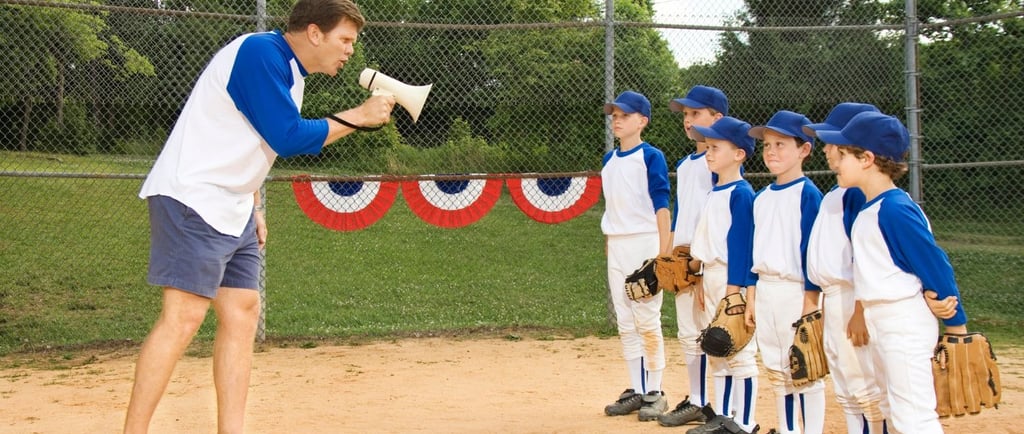Implementing Effective Discipline
It can be a tough task to coach, especially if you don't have the right respect from the players. This can be achieved in some very easy-to-implement ways.
11/4/20245 min read


Discipline is a crucial part of coaching any youth sports team, but for volunteer coaches—many of whom may be stepping into a coaching role for the first time—knowing how to implement it effectively can be a challenge. When coaching young athletes, discipline isn't just about enforcing rules; it's about creating a positive environment that promotes respect, focus, and growth. Proper discipline helps maintain a well-organized practice, teaches players accountability, and can even boost motivation.
Why Discipline Matters in Youth Sports
Good discipline isn’t about punishment; it’s about guiding young athletes toward better behavior and helping them learn the importance of respect, hard work, and teamwork. According to the Positive Coaching Alliance, discipline is an essential element in creating a safe and structured environment where children can thrive. When implemented thoughtfully, discipline fosters an atmosphere of mutual respect between players and coaches, reduces disruptions, and enhances team morale.
1. Set Clear Expectations from Day One
The most effective discipline starts before any problems arise by setting clear expectations. At the beginning of the season, lay out your guidelines for behavior, effort, and respect. When players understand what’s expected of them, they’re less likely to test boundaries.
Tips:
Hold a Team Meeting: At the first practice, discuss the team rules and the importance of respect, focus, and effort. Make sure every player understands that these expectations apply during practices, games, and even on the sidelines.
Keep Rules Simple and Age-Appropriate: Younger players may struggle with complex rules, so stick to a few simple, clear ones. For example: “Respect your teammates,” “Listen to the coach when they’re talking,” and “Give your best effort.”
Involve Parents: Share the team rules with parents so they understand and support your approach. Reinforcing these expectations at home can help reduce misbehavior and encourage focus.
2. Use Positive Reinforcement to Encourage Good Behavior
Positive reinforcement is a highly effective tool for volunteer coaches, as it rewards players for good behavior rather than punishing them for mistakes. Recognizing and praising players for effort, focus, and respect encourages them to keep up these positive behaviors.
Tips:
Catch Them Doing Something Right: When you notice a player focusing during a drill, listening attentively, or supporting a teammate, acknowledge it publicly. For example, “I love how Sarah is keeping her eyes on the ball. Great focus, Sarah!”
Create a Reward System: Implement a system where players earn points or small rewards for good behavior, such as extra time in a fun drill, or being named “Player of the Day.”
Emphasize Effort: Children thrive when they feel their efforts are noticed. Even if a player is struggling with a skill, recognize their persistence and willingness to try.
Positive reinforcement has been shown to improve performance and reduce behavioral issues in sports, as noted in a study published by the Journal of Applied Sport Psychology. When players feel rewarded for positive actions, they’re more motivated to repeat those behaviors.
3. Manage Focus and Attention in Practice
Keeping young athletes focused during practice can be challenging, especially in a group setting. Ensuring your players pay attention helps create an environment where they can learn and develop their skills without distractions.
Tips:
Use “Attention Signals”: Develop a signal for quiet and focus, such as a whistle blow or clapping pattern. Teach players that this signal means they should stop talking and focus on the coach. Consistency is key—use the same signal every time. I like to say the phrase "hold your hand up if you're listening" and then wait until all the players have their hands raised.
Break Practices into Short Segments: Kids have limited attention spans, so avoid long-winded explanations or overly complicated drills. Divide practice into short, focused segments with frequent breaks, keeping instructions simple and clear.
Engage with Questions: Rather than simply giving instructions, involve players by asking questions that reinforce their understanding. For example, “Where should you be standing when the ball is here?” or “What’s the first thing you should do when you catch the ball?”
Creating an engaging practice structure not only improves focus but also allows players to feel a greater sense of involvement and responsibility.
4. Address Disruptive or Bad Behavior Calmly and Fairly
When players display disruptive behavior—whether it’s talking over the coach, roughhousing, or not listening—addressing it calmly and consistently is crucial. Reacting angrily or inconsistently can undermine your authority and confuse players about expectations.
Tips:
Pull Players Aside for One-on-One Talks: If a player is behaving inappropriately, pull them aside for a private discussion. This prevents embarrassment in front of teammates and allows you to address the issue calmly. Emphasize that you expect better from them, and discuss the importance of respect and focus.
Use a “Three-Strike” System: For repeat offenders, establish a three-strike policy, where players receive two warnings before a consequence, such as sitting out for a few minutes. This gives players the chance to adjust their behavior before facing more significant consequences.
Stay Calm and Consistent: Children look to adults for cues on how to respond to situations. By remaining calm and handling disruptive behavior consistently, you set an example for how players should handle their own frustrations.
A study in the Journal of Child Psychology and Psychiatry found that children respond better to discipline when it’s applied consistently. Consistent discipline helps players understand that actions have consequences, and it encourages self-regulation.
5. Encourage and Reward Effort to Combat Lackluster Attitudes
It’s common for some players to display lackluster effort, especially if they feel discouraged or unmotivated. To combat this, focus on fostering a growth mindset and rewarding players for effort, rather than talent alone.
Tips:
Introduce Effort-Based Drills: Include drills that reward effort, such as sprints or small challenges where players earn points for working hard. For example, set a drill where players score points based on the speed and accuracy of their passes.
Set Personal Goals: Work with players to set individual goals based on effort, like “try to hustle during each drill” or “focus on maintaining energy throughout practice.” This helps players see their progress and fosters intrinsic motivation.
Showcase Effort Publicly: During practice, acknowledge players who give their best effort with encouragement like, “I really appreciate the energy you’re bringing today!” Public recognition can inspire other players to put in more effort as well.
Psychologist Carol Dweck’s research on growth mindset shows that children are more motivated and resilient when they are praised for effort over natural ability. By emphasizing hard work and improvement, you can help players develop a love for learning and improve their perseverance.
Supporting Insights and Research
Research supports the idea that discipline in youth sports is best achieved through a combination of clear expectations, positive reinforcement, and consistency. According to the National Alliance for Youth Sports, children are more likely to stay engaged and learn effectively when discipline focuses on respect and improvement rather than punishment. By implementing consistent, fair discipline and creating an environment that rewards effort and positive behavior, you can help young athletes build confidence and stay engaged.
Conclusion
Implementing effective discipline as a volunteer coach doesn’t have to be intimidating. By setting clear expectations, using positive reinforcement, managing focus, addressing bad behavior consistently, and encouraging effort, you can create a structured and supportive environment that allows young athletes to thrive. Remember, discipline in youth sports isn’t about enforcing strict rules or penalties; it’s about helping kids develop life skills, respect, and a strong work ethic.
When you approach discipline with patience, positivity, and consistency, you’re not only building better athletes but also helping shape young individuals who are resilient, respectful, and motivated to learn. Embrace this opportunity as a volunteer coach to make a lasting impact that extends far beyond the field or court.

